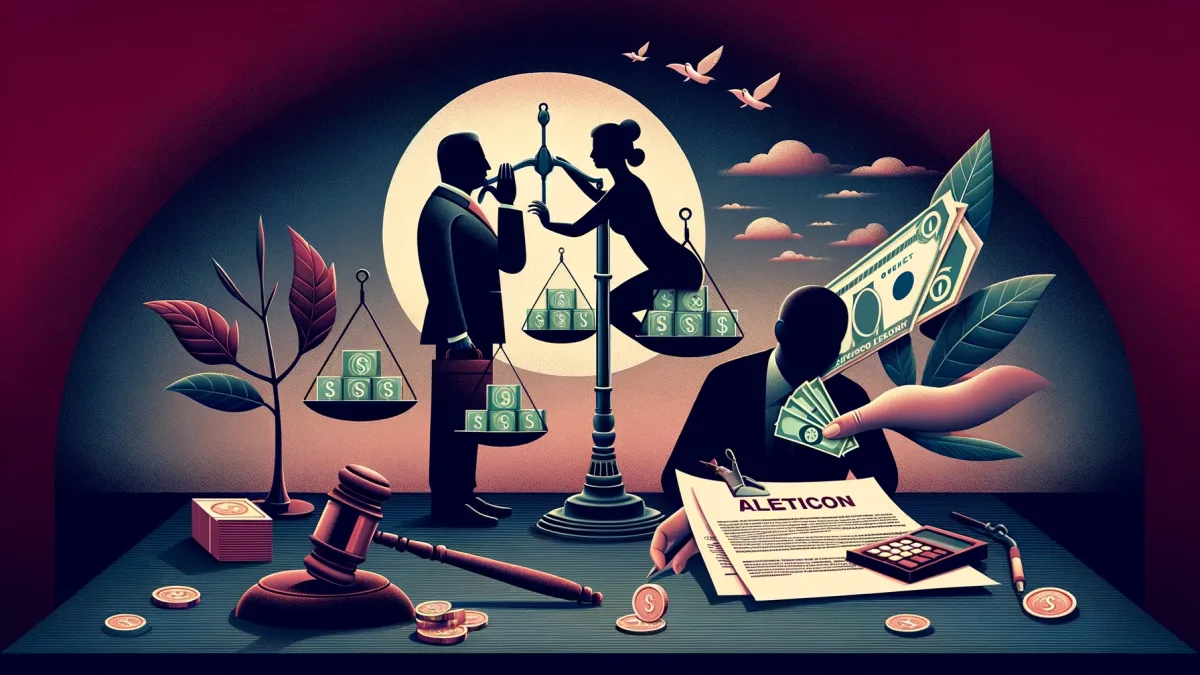Hush money, often characterized as a payment made to silence someone about a potentially damaging or sensitive issue, can be found in various legal and illegal forms within the United States. The legality of paying hush money depends on the context of the transaction, the purpose behind it, and the means by which the agreement is executed.
Hush money is commonly understood as a sum of money paid to prevent someone from disclosing information that could be harmful to the payer’s reputation or interests. This term is typically used in a derogatory sense and suggests an element of wrongdoing or concealment.
The legality of hush money payments is primarily determined by federal laws that address issues of bribery, coercion, extortion, and campaign finance.
Bribery and Extortion
Under federal law, specifically 18 U.S.C. § 201 (Bribery of Public Officials and Witnesses) and 18 U.S.C. § 1951 (The Hobbs Act), it is illegal to offer, pay, or accept bribes, or to engage in extortion. If hush money is paid to a public official with the intent to influence their official actions, it is classified as a bribe. Similarly, if the payment is extorted from someone through threats or coercion, it constitutes extortion.
Campaign Finance Laws
The Federal Election Campaign Act (FECA) regulates the financing of political campaigns. Under FECA, concealing a payment that is intended to influence an election can be illegal. For example, paying hush money to suppress damaging information during a campaign could be considered a violation if it is not reported to the Federal Election Commission (FEC) as required by law.
Contract Law
Hush money agreements sometimes take the form of confidential settlement agreements or non-disclosure agreements (NDAs). These are legal contracts in which one party agrees to pay another in exchange for their silence on a specific issue. However, these agreements may be unenforceable if they are designed to cover up illegal activities.
Obstruction of Justice
Paying hush money with the intention of concealing evidence or obstructing investigations can be prosecuted under obstruction of justice statutes, such as 18 U.S.C. § 1503.
State laws may also apply to hush money payments, particularly in the context of civil litigation and settlement agreements. State laws can vary significantly, but many have statutes that mirror federal laws on bribery, extortion, and obstruction of justice.
Beyond legal restrictions, there are ethical considerations. Professional ethics rules, especially for attorneys, may impose additional constraints on the use of hush money, particularly insofar as it relates to the concealment of evidence or the obstruction of legal processes.
Several high-profile cases have brought the issue of hush money into the public eye, often involving politicians, celebrities, or corporate settlements. These cases frequently raise questions about the boundaries of legal settlements and the potential for abuse of such agreements.
The payment of hush money is not inherently illegal in the United States; its legality is context-dependent. If the payment is made for the purpose of preventing someone from reporting a crime, influencing a public official, or swaying an election in violation of campaign finance laws, it may be illegal. Conversely, confidential settlements and NDAs are legal instruments that can include payments for silence, provided they do not seek to conceal illegal activities or obstruct justice. It is critical for parties engaging in such agreements to ensure they are in compliance with all relevant laws and regulations.
References
- U.S. Code Title 18, Section 201 – Bribery of Public Officials and Witnesses, available at https://www.law.cornell.edu/uscode/text/18/201.
- U.S. Code Title 18, Section 1951 – The Hobbs Act, accessible at https://www.law.cornell.edu/uscode/text/18/1951.
- Federal Election Campaign Act (FECA) and the Federal Election Commission (FEC) guidelines, found at https://www.fec.gov/help-candidates-and-committees/guides/.
- U.S. Code Title 18, Section 1503 – Obstruction of Justice, available at https://www.law.cornell.edu/uscode/text/18/1503.









Leave a Reply